How to Leverage Mortgage Debt to Build Wealth

“Real Estate” immediately emerges as the catch-all answer for wealth creation strategy through economic up cycles. Interestingly, the gross majority of prospective, starry-eyed investors will balk at the fact that historical housing prices simply track the rate of inflation. Yes, it is leverage that drives spectacular returns in real estate.
Leverage Mechanics and Mathematics
Investors leverage combinations of debt, stock options, and other derivatives to control large asset pools with relatively small initial investments. For real estate, mortgage debt is the fulcrum that magnifies investment returns.
A mortgage is a secured loan, with real estate serving as collateral to back the loan. Banks will foreclose upon or seize property to auction it off to make good on bad debt. For this, Big Banks are more so willing to take on the financial risks of lending out hundreds of thousands of dollars to small, retail clients.
Only in real estate.
We present one $250,000 two-bedroom, two-bath condominium in Hyde Park, Chicago. For the sake of simplicity, we expect a 5% annual return, while ignoring agent commissions, property taxes, interest, HOA fees, and general maintenance. After one year, this property is now worth $262,500, and a cash buyer may then put the condo up for sale and pocket a tidy $12,500 off his initial investment.
A savvier investor, however, might have still secured a mortgage for 10% down, or only $25,000. This investor would still also collect the $12,500 in profit. Because of leverage, this same profit is now a much more dramatic 50% return on investment.
The Mortgage Application Process
Order and review your credit report prior to initiating the mortgage application process. Experian, Equifax, and TransUnion all provide online forms and help desks to dispute any erroneous account information.
A credit score above 700 will be ideal to qualify for most mortgages. At this level, you will be showing a strong history of making timely debt payments, while also managing minimal balances. As part of the Fair Credit Reporting Act, you are eligible to receive one free credit report per year through AnnualCreditReport.com. For real time reporting, you might also consider establishing a Credit Karma profile.
The bank will also pull up your credit report, before extending pre-approval for the mortgage loan. Next, your loan officer will request recent pay stubs, tax returns, banking statements, and investment holding information.
Expect mortgage loan approval for monthly principal and interest payments of equal to or less than 30% of your gross income. Terms and conditions will be more lenient for owner-occupied, as opposed to investment property.
A conservative saver will typically opt to put up a 20% down payment to avoid paying costly private mortgage insurance (PMI), especially if he plans to remain living in the home for several years. Alternatively, the bank may demand a hefty 50% down payment out of borrowers for riskier investment projects.
Mortgage Loan Types
Home loans may be broadly classified according to either fixed, or adjustable-rate mortgages (ARMs). A fixed-rate mortgage, as the name suggests, will charge the same, level interest rate throughout its duration.
30-year, fixed mortgages are especially ideal for middle income homeowners, who may now easily budget and invest around stable housing costs. 15-year mortgages do offer slightly lesser rates, but also require significantly higher monthly payments. To best use leverage, our goal is to preserve free cash flow, for making ever more productive investments.
Short-term investors and young professionals are more likely to consider adjustable-rate mortgages. ARMs do heighten financial risks, in that variable rates will shift alongside the prevailing economy. ARMs typically begin with a low introductory rate, or teaser, lasting from between 12 and 84 months.
Upon expiration, ARM principal and interest payments may fluctuate wildly, from month-to-month. By then, however, a short and medium-term buyer would have already unloaded the property.
Lastly, interest-only and balloon mortgages are best reserved for the most sophisticated of investors and real estate flippers. Here, the investor will put up the bare minimum, while the bank lays in wait for a massive payment several years down the line at loan maturity. Developers will direct the excess cash into upgrades and renovations immediately before putting the home right back on the market.
Tax Write Offs and Mortgage Refinancing
Homeowners will deduct mortgage interest expenses for first and second homes if total itemized costs exceed the standard deduction. 2023 standard deductions are $13,850 and $27,700 for single and married filing jointly filers, respectively. As an investor, you may write off all mortgage interest from your income tax returns.
Top marginal tax rates are now 32%, 35%, and 37%, which effectively lowers the real carrying costs of mortgage debt to all but zero.
Mortgage refinancing prospects always loom large as a mulligan – to mitigate interest rate risk and correct bad deals. Loan origination fees and closing costs will be money well spent for a new, refinanced mortgage with a 1.5% lower rate. Borrowers may fall into significant cash savings by refinancing out of a 30-year and into a 15-year fixed mortgage, after several years of homeownership.
Financial Strategy
Similar to a money center bank, successful leverage calls for you to take on cheap debt and then invest borrowed funds at a higher rate of return. For this, the COVID-19 Era set off a feeding frenzy in real estate and financial markets, with institutional buyers leveraging free money for capital spending and investments.
The Federal Reserve has responded in kind – by driving its overnight lending rate from zero to 5.5% to stifle white hot inflation. 30-year fixed mortgages are now approaching 7% interest, which does slow the carry trade.
Overly aggressive investors are always at risk for taking on too much debt, right before economic collapse. From here, we expect for savvy players to snap up foreclosed properties on the cheap, as was the case through the Great Recession.
At these levels, young professionals and middle-income homeowners still stand to benefit from leverage, by prioritizing investments far above mortgage amortization.
Ed from Accounting would have already retired as a multi-millionaire had he have bought shares of Apple stock, additional rental properties, or even maxed out his 401(k), rather than plowing cash into extra mortgage principal payments.

